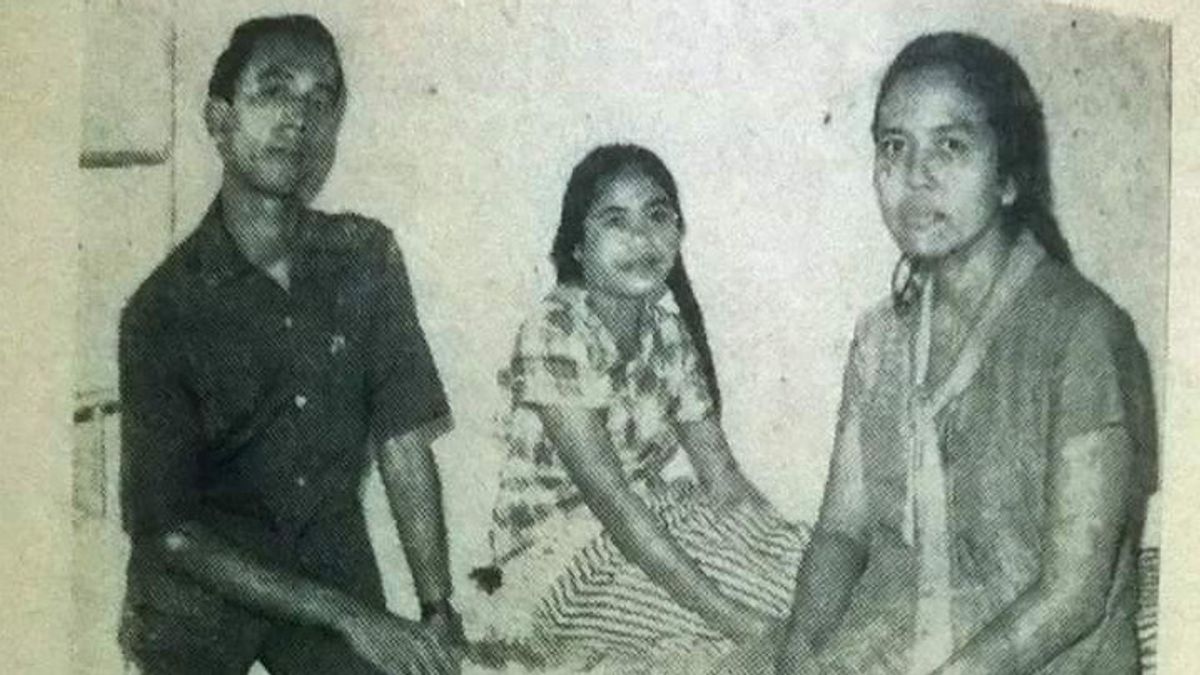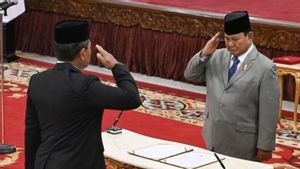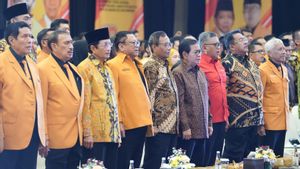The public is aware that the heinous accusation is only meant to save the rapists who are said to be big boys in Yogyakarta. The National Police Chief Hoegeng Imam Santoso was furious. But Suharto was the opposite. The 17-year-old woman spends her time trading eggs every day.
Around 200 free-range chicken eggs are brought for sale in Yogyakarta. He circulated his wares to customers spread across Kota Baru, Bumijo, Suryobratan, Ngasem, Patuk, Tegal Mulyo and other villages.
Sum is at stake for a living. One day, in December 1970, the eldest of three children of the husband and wife Sudiredjo was busy in trading. He has to deliver his eggs to many customers.
As a result, Sum is late on the city bus to go home. Sum chose to walk in a quiet suburb of Yogyakarta. Sum was then imprisoned.
“He saw the longish youths get out of the car and forcefully pulled Sumaridjem into the car. He tried his best to resist the coercion of the gangsters, but to no avail,” said Kamadjaja et al in their book Sum Kuning, Victims of Pentjulikan, Rape (1971).
Sum fear is not playing. He struggled but could not scream. Screaming is the same as dying. The car was filled with four men. Three of them have long hair and one is short. Over time, the drug reaction began to be felt by Sum.
His consciousness began to be disturbed. But Sum had time to feel how the long cloth was exposed. His feet and hands were pressed by the youths while singing. Sum then raped in turns until he fell unconscious.
When he realized Sum felt pain in his groin. His legs and long cloth were covered in blood. Sum is completely helpless. The money from selling eggs as much as Rp. 4,650 was also stolen by the rapists. Hard-earned money for selling capital tomorrow and supporting the family.
“While still semi-conscious, tired, suffering from physical and psychological pain, Sum was pushed out of the car. In fact, Sum was dumped on the side of the Wates-Purworejo highway, precisely in the Palemgurih area, Gamping, Sleman, about 5 KM west of Yogya City." Summarizes Aloysius Soni BL de Rosari in the book The Elegy of Law Enforcement: The Story of Sum Kuning, Prita, to the Widow of Heroes (2010).
While enduring the pain, Sum immediately got up and walked towards the city of Yogyakarta. The only thing that Sum can think of is the house of a regular in Bumijo, Mrs Sulardi. Armed with Rp100, he took a rickshaw. Sum cried when he arrived at the location. He was hospitalized.
Victim becomes suspect
The rape incident caused Sum kuning to be hospitalized for four days. The Yogyakarta Police did not help, but instead played the drama "The thief shouts the thief." Sum as a victim was not only placed in the prison chair but began to be led as a suspect.
Sum is accused of spreading fake news. After the hospital Sum was arrested. Its range of motion is limited. Even the police threaten Sum to be electrocuted if he doesn't admit another version of the story.
“It is said that this rape was carried out by a high-ranking child in Yogyakarta. Ironically, the rape victims themselves were even detained because they were accused of giving false reports. This case is increasingly attracting public attention because the trial is conducted behind closed doors. Even the journalists who wrote the stories of these events had to deal with the military. Then the incident escalated, until the rape victim was accused of being a member of Gerwani, a women's organization that is considered to be affiliated with the PKI.”
“Then a meatball seller who was suspected of being the perpetrator of rape was also presented, which of course he denied in court. Then, there were also ten youths who were told to admit to being rapists, also denied committing rape, and even vowed to die if they raped," said Yudi Latif in the book Springs of exemplary: Pancasila in Action (2014).
Sum's case is getting more and more prominent because his trial is the first to be held behind closed doors. Journalists are not allowed to cover. The general public began to sniff out anomalies in the rape case of an egg seller.

Controversy over Sum's case is growing because a version of a car dealer named Budidono emerged. He admitted to being one of the four youths who raped. Budidono then explained the astonishing fact that the involvement of the children of the big boys in Yogya further heated the situation.
Budidono, in a report on the October 2, 1971 edition of Tempo magazine, explained that the person with him was none other than mur purta of Brigadier General Katamso. The other is Angling Putra from Paku Alam VIII, who also serves as Deputy Governor of Yogyakarta. Lastly, is Ismet.
The report immediately made the attention of the people of Yogyakarta and Indonesia focused on the Sum Kuning case. The audience was even more suspicious because at that time only the rich and very rich owned cars.
“In Yogyakarta there was also the story of an egg seller who later became known as Sum Kuning. Every Yogyakarta resident can and has sniffed that the one who raped Sum Kuning was, among other things, the son of a very high-ranking official in Yogyakarta,” Bakdi Soemanto wrote in the book Reading Sapardi (2010).
The difference between Hoegeng and Suharto's attitudeEven though Sum had been released, the sentence given to Sum Kuning made the National Police Chief General Hoegeng Imam Santoso (1968-1971) furious. He then paid more attention to the Sum Kuning case.
The honest police used the Sum Kuning case as a means of proving that he was an indiscriminate police chief. Hoegeng believes that the estuary of the Sum Kuning case is in the version that mentions the involvement of officials' children. Not in the Yogyakarta police version which says rapists are ordinary people.

Hoegeng immediately asked for an answer from the Yogyakarta Police. In early January 1971, Hoegeng ordered the formation of a team to handle the Sum Kuning case. The name of the team is the Yellow Sum Examiner Team.
“Please note that we are not afraid to face anyone big. We only fear God Almighty. So, even if it's our own family, if we make a mistake, we will still act. Move on, the sooner the better,” said Hoegeng as written by Aris Santoso et al in the book Hoegeng: A Cooling Oasis Amidst the Corrupt Behavior of National Leaders (2009).
In the same month, Hoegeng told President Soeharto about the progress of his case. In the meeting that took place, Suharto was not really interested in the Sum Kuning case. The Smiling General instead instructed the Sum Kuning case to be handled by the Operational Command for the Restoration of Security and Order (Kopkamtip).

Suharto's attitude was considered odd as the Sum Kuning case was more than an ordinary criminal case. Before the case was revealed, Suharto was dismissed by Suharto on October 2, 1971. At the same time, the echo of the Sum Kuning case since it was taken up by Kopkamptip disappeared from the surface.
In the end, the disclosure of the perpetrators is actually not touched by the law, at least until now. Hoegeng then regretted the actions of the New Order government for allowing other parties to interfere in the affairs of the Police.
“My hope is that the affairs of the Police will not be interfered with by other parties, it will become a concern in the handling of the Sum Kuning case in Yogya. The handling of this case is a bad sign that it is impossible for all police functions to be handed over to the Police in the near future,” concluded Hoegeng as written by Abrar Yusra and Ramadhan KH in the book Hoegeng: Ideal Police and Reality (1993).
*Read other information about the NEW ORDER or read other interesting articles from Detha Arya Tifada.
Other MEMORIESThe English, Chinese, Japanese, Arabic, and French versions are automatically generated by the AI. So there may still be inaccuracies in translating, please always see Indonesian as our main language. (system supported by DigitalSiber.id)









